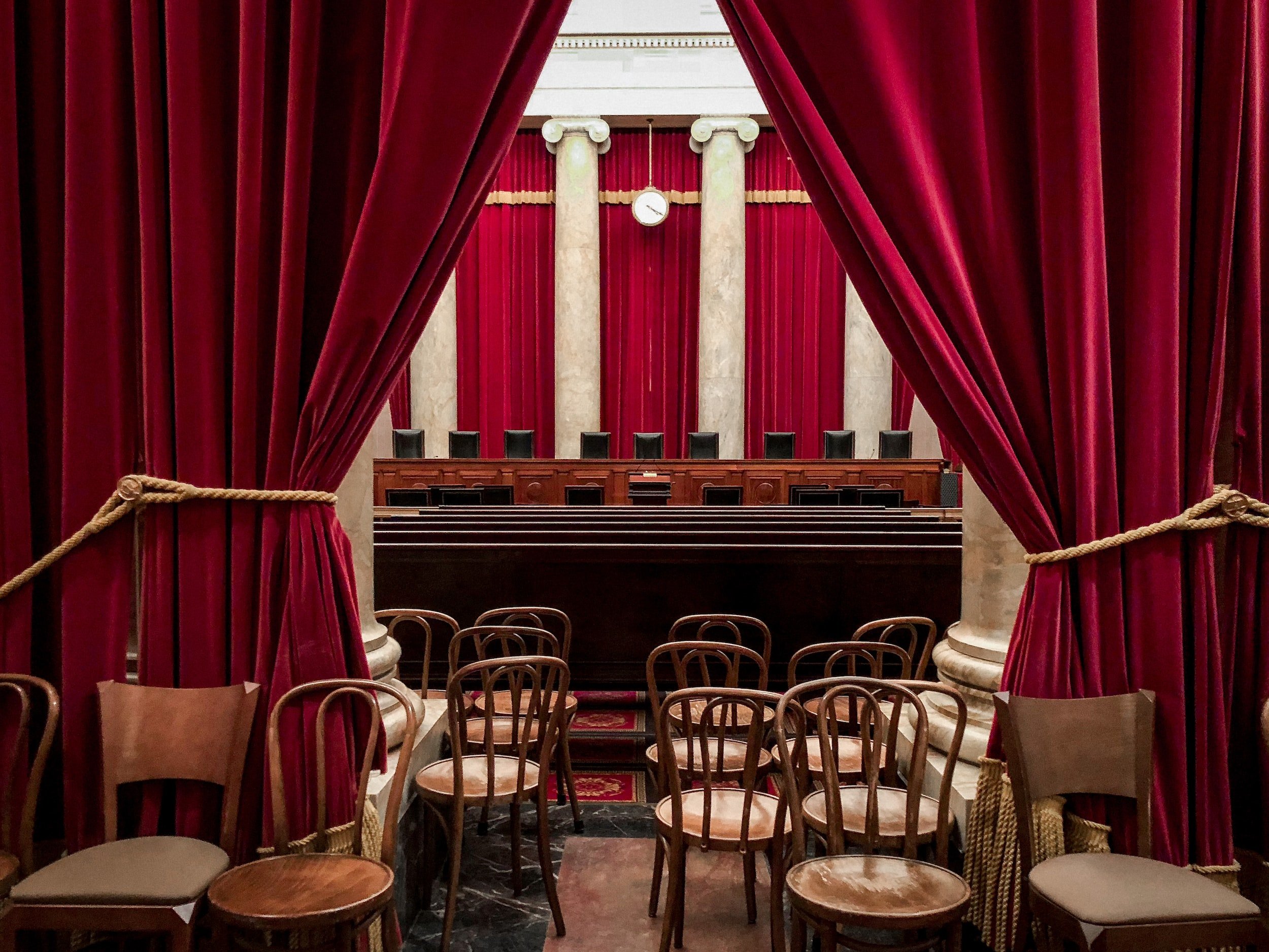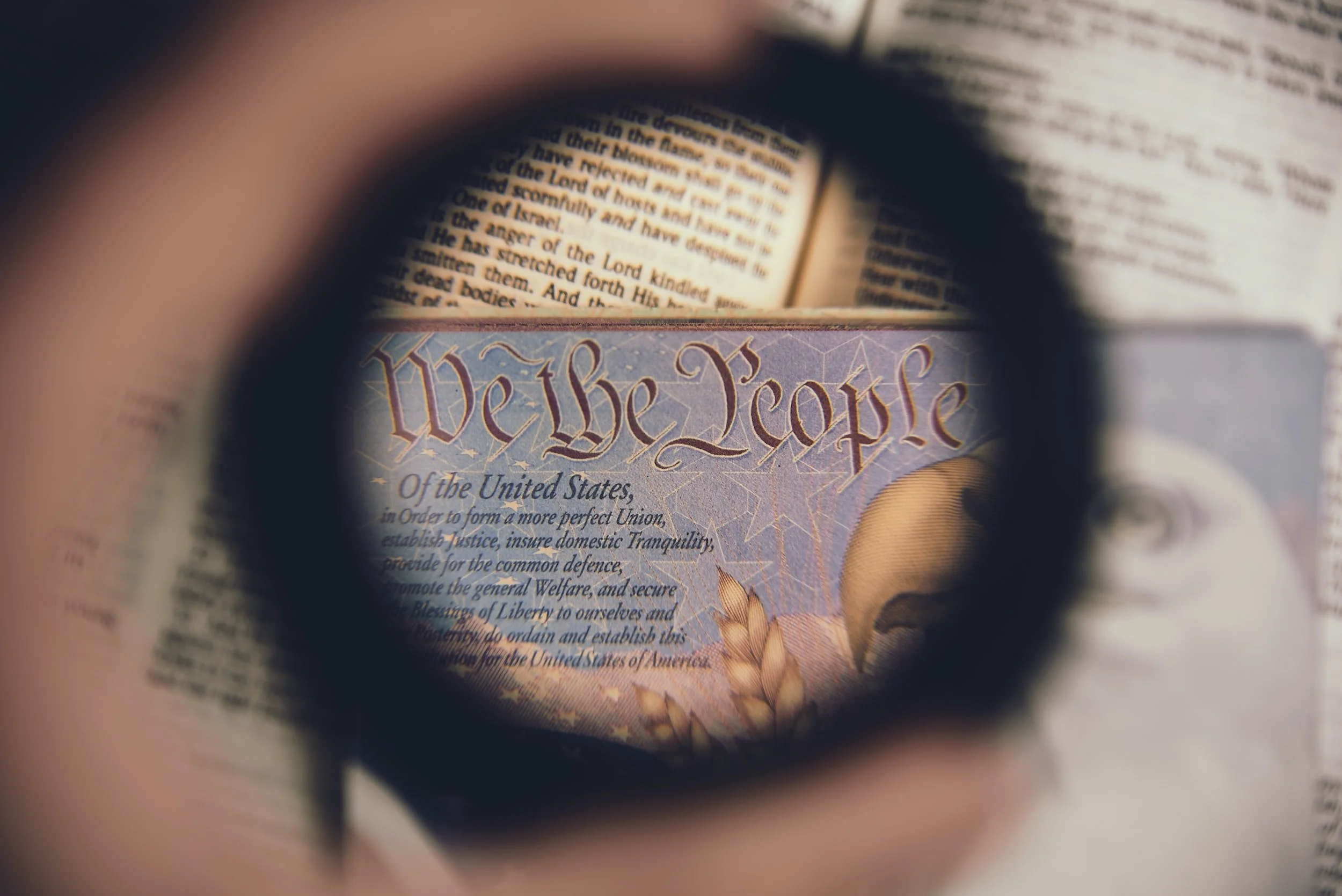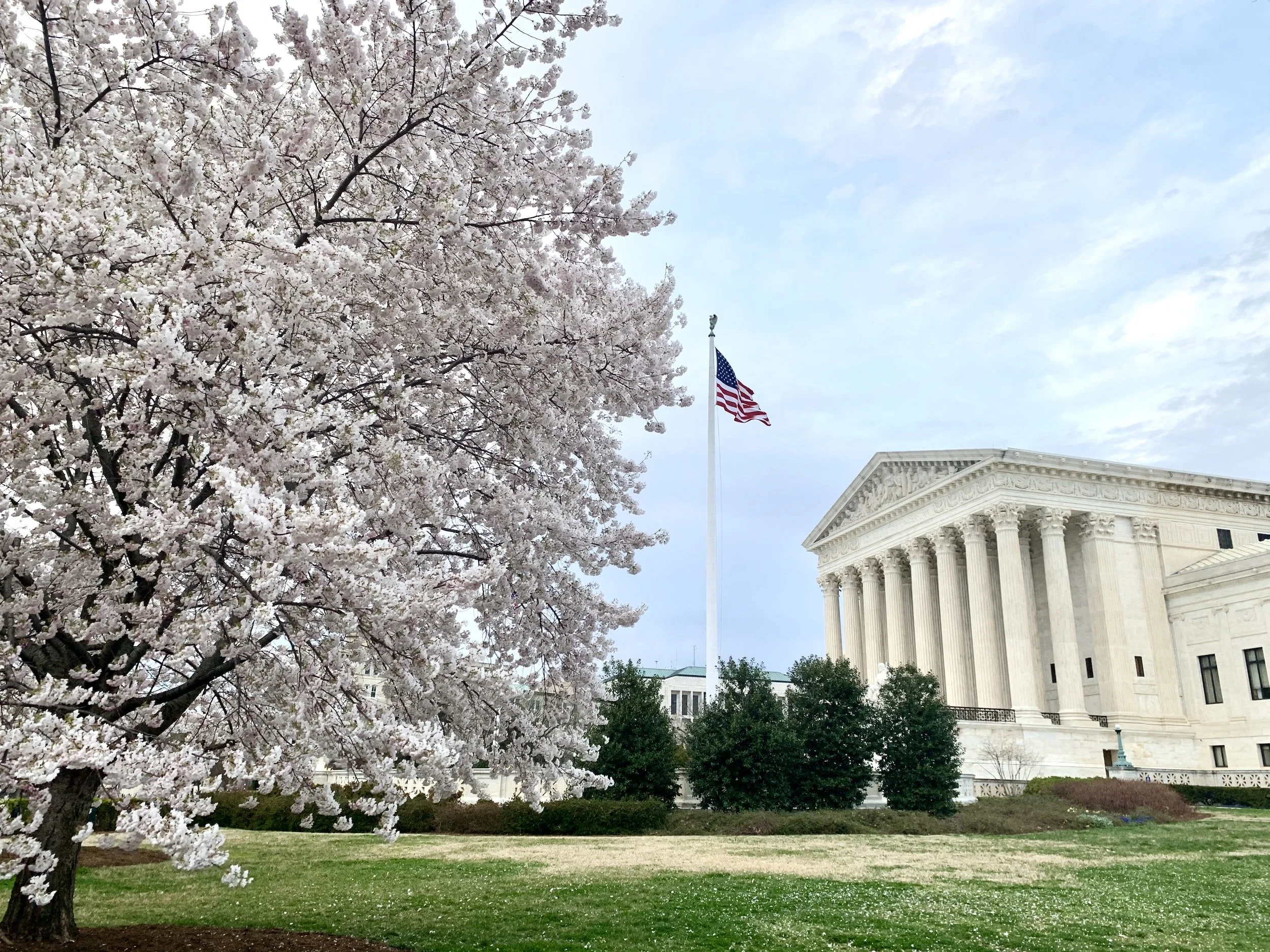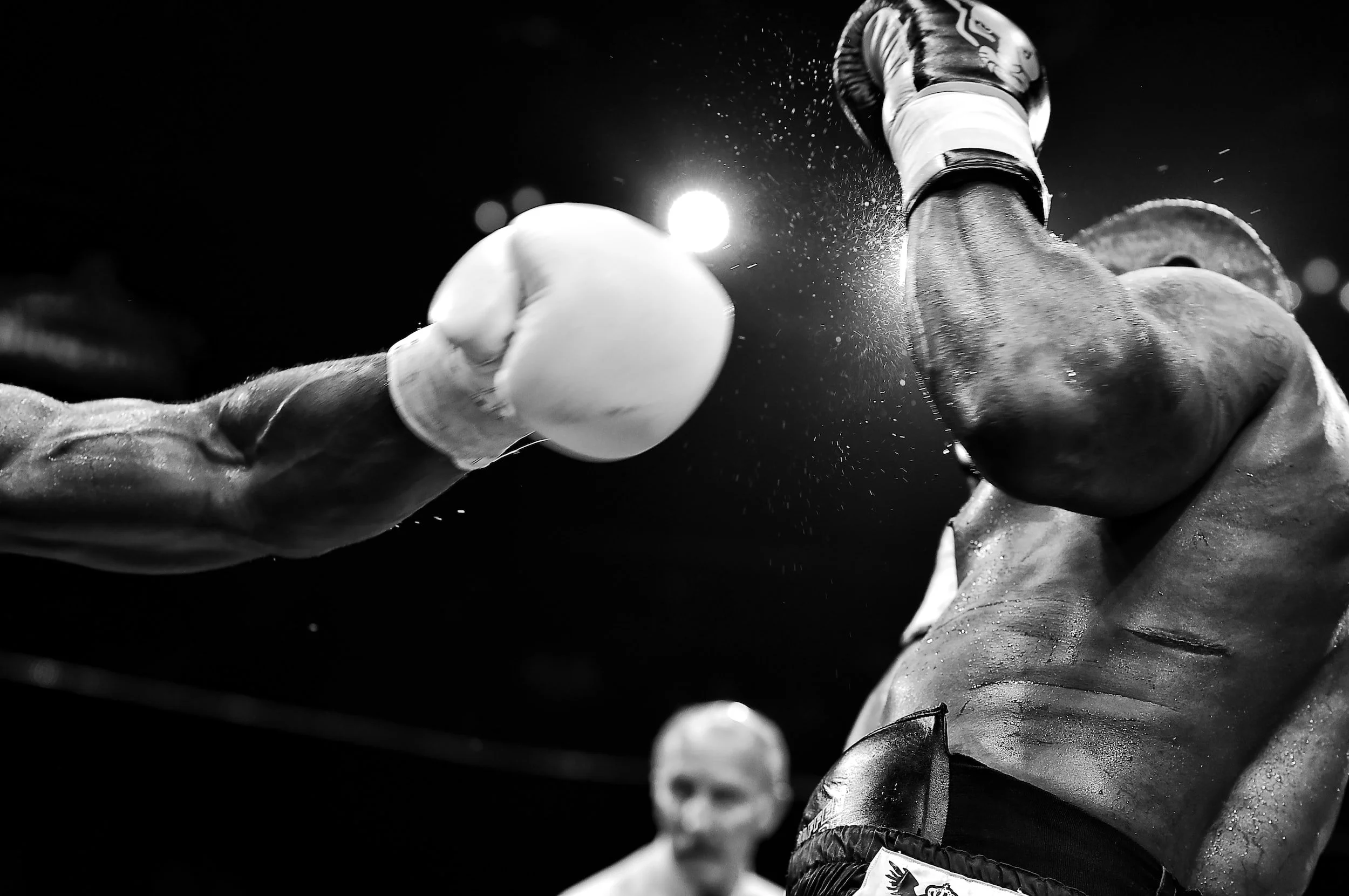McCulloch v. Maryland (1819)
Constitutional Connection
Article I, Section 8 of the U.S. Constitution. The “Necessary and Proper” Clause
The Supremacy Clause (Article VI, Clause 2) The part of the Constitution specifically states that federal laws take priority over state laws.
McCulloch v. Maryland(1819) is one of the first and most important Supreme Court cases on federal power. In this case, the Supreme Court held that Congress has implied powers derived from those listed in Article I, Section 8. The “Necessary and Proper” Clause gave Congress the power to establish a national bank.
Key Facts
After the War of 1812, (when was the war of 1812?) the U.S. government needed additional funds to pay off the debts of the war. At the time, there was no central US national bank, so instead of being able to borrow money from one institution, the government had to work with multiple state banks. How inefficient! As a result, in 1816, Congress set up the Second Bank of the United States with branch offices in multiple locations and convenient horse and buggy drive through service. Many states opposed the National Bank because the state banks then had to compete for business. In response, Maryland passed a law requiring the national bank to pay a heavy tax to the state of Maryland. James W. McCulloch, the bank's bad-to-the-bone cashier, refused to pay the tax! The state appeals court held that the Second Bank was unconstitutional because the Constitution did not provide a textual commitment for the federal government to charter a bank.
McCulloch was convicted of failing to pay the tax and was fined $2,500. He appealed the case to the Maryland Court of Appeals, which upheld the decision of the lower court and affirmed McCulloch's conviction. The dispute reached the Supreme Court of the United States.
“The Congress shall have Power To...make all Laws which shall be necessary and proper for carrying into Execution the foregoing Powers, and all other Powers vested by this Constitution in the Government of the United States, or in any Department or Officer thereof.”
Big Questions
Did Congress have the authority to establish the bank?
Did the Maryland law unconstitutionally interfere with congressional powers?
Do Supreme Court justices look good in robes?
Holding
6-0 In a unanimous decision, the Court held that Congress had the power to incorporate the bank and that Maryland could not tax instruments of the national government employed in the execution of constitutional powers.
Pursuant to the Necessary and Proper Clause (Art. I, Section 8), Chief Justice Marshall noted that Congress possessed powers not explicitly outlined in the U.S. Constitution. Marshall redefined “necessary” to mean “appropriate and legitimate,” covering all methods for furthering objectives covered by the enumerated powers. Marshall also held that while the states retained the power of taxation, the Constitution and the laws made in pursuance thereof are supreme and cannot be controlled by the states.
Impact of case
The decision in McCulloch had a profound effect on cases involving state vs. federal power. The doctrine of implied powers created by the court became a powerful tool for the federal government. The case established, once and for all, that when state and federal laws are in conflict, the federal law always wins. The United States would be a very different place today were it not for the McCulloch ruling.
Connections
All other federalism cases and the concept of national supremacy, where national laws are supreme to state laws, spring from the ruling on McCulloch v. Maryland.
“Let the end be legitimate, let it be within the scope of the constitution, and all means which are appropriate, which are plainly adapted to that end, which are not prohibited, but consist with the letter and spirit of the constitution, are constitutional.”
Critical Questions
How did McCulloch impact the power relationship between states and the national government?
How are the conflicts between Federalists and Anti-Federalists resolved in McCulloch?
What would the author of Brutus I say about the McCulloch ruling?
The ruling in the McCulloch was unanimous. Can you imagine this ruling being overturned today?
How would the American political system be different without the ruling from McCulloch?
Imagine life without The Necessary and Proper Clause, where the federal government is limited to only enumerated powers listed in Article I, Section 8 of the US Constitution. Think about how different the government and American life would be.
Imagine life without The Supremacy Clause, where much like America under the Articles of Confederation, the federal government is no longer superior to the states. Think about how different the government and American life would be.
Is pizza delicious or what?
Is the growth of the federal government which McCulloch v Maryland made possible a good thing?
If you were John Marshall how would you have ruled in McCulloch v Maryland?
The Tenth Amendment states that "The powers not delegated to the United States by the Constitution, nor prohibited by it to the States, are reserved to the States, respectively, or to the people." How does the Tenth Amendment relate to the McCulloch ruling?
Is it fair to say that with the McCulloch v. Maryland ruling the Federalists won?
Resources
Oyez - McCulloch v Maryland
Crash Course Video - Federalism
National Archives Primary Source - McCulloch v Maryland ruling
Why isn’t there a recording of the oral arguments?
Bonus Fun Facts
When the Maryland courts upheld this law, the Bank, in the name of its Baltimore branch cashier James W. McCulloch, appealed to the Supreme Court. Who said bank tellers couldn't be famous!?!
Daniel Webster, with William Pinkney, argued the case on behalf of the Bank. Luther Martin argued the case on behalf of Maryland.
The First Bank of the United States was chartered by Congress for 20 years on February 25, 1791. The concept of the bank was the brainchild of Alexander Hamilton, the first Secretary of the Treasury and a visionary for the great future of America.
John Marshall was the chief justice presiding over a landmark case - again!
There were seven Supreme Court Justices when the case was decided. The ruling was unanimous, but Justice Thomas Todd did not take part in the ruling. On March 29, 1812, Todd had married Lucy Payne Washington, the youngest sister of Dolley Madison and the widow of Major George Steptoe Washington, who was a nephew of President George Washington. It is believed to be the first wedding held in the White House.
Supreme Court Justices do look fat in their robes.
Bonus Civic Action
Throughout American history there has been a battle between those who fear anarchy and those who fear tyranny. These battles have been fought by Anti-Federalists, and Federalists, Decentralists and Centralists, Republicans and Democrats; and have been fought at the Constitutional Convention, in the Supreme Court, and at the ballot box. And today this fight continues regarding the government's power in the war on terror, state marijuana laws, and immigration enforcement. In terms of this long fought war, think about the trajectory that our country took because of the ruling in McCulloch v Maryland. Would we be better off with a federal government limited to the enumerated powers of the US Constitution; would we be better off with a more robust and powerful federal government; or do we have this balance just right? Contact your member of the U.S. House of Representatives and share your opinion of this fight regarding a current event.
Bonus Arguments and Power Quiz
Main Arguments for McCulloch:
Although the power to charter a national bank is not specifically mentioned in the Constitution, it is one of the implied powers that the Necessary and Proper Clause grants Congress.
The bank is a "necessary and proper" way for Congress to conduct the financial affairs of the country.
If Maryland is allowed to tax the bank, the state could destroy the bank by taxing it so much that it would have to close.
Main Arguments for Maryland:
The right of the national government to establish a bank is not specifically granted in the Constitution.
It is also not an implied power, so Congress had no right to establish a national bank.
The power to establish banks is reserved for the states.
States are sovereign (they have complete and permanent authority over themselves), so they have the authority to tax institutions and businesses in their borders.
Main Arguments for Pizza:
Easy to divide evenly.
Tastes great.
Can eat with hands!
Can be used as a Frisbee in an emergency.
Everybody loves pizza!
Bonus Creative Time
Do one of the following to share:
Create a facebook page for either James McCulloch or John Marshall.
Replace the words of a popular rap or song with facts, data, details, and information from McCulloch v Maryland. For example: Hey Jude = Hey Judge
Hey Judge, don't make it bad
Take a bad clause and make it better
Remember to let it into your heart
Then you can start to make it better
Hey Judge, don't be afraid
You were made to make government bigger
The minute you let national government win
Then you begin to make it better
And anytime your court constrains, hey Judge, refrain
Don't limit the gov upon your shoulders
For well you know that it's a fool who plays it cool
By making his gov a little bolder
Nah nah nah nah nah nah nah nah nah
Hey Judge, don't let the elastic clause down
You have founded a bank, now go and get her
Remember to let the Second National Bank into your heart
Then you can start to make it better
So let national supremacy in, hey Judge, begin
You're waiting for some states to perform with
And don't you know that it's just you, hey Judge, you'll rule
The power you need is in your majority opinion
Nah nah nah nah nah nah nah nah nah yeah
Hey Judge, don't make it bad
Take the words of the framers and make it better
Remember to let James McCulloch win win win
Then you'll begin to make our country
Better better better better better better, oh
Nah nah nah nah nah nah, nah nah nah, hey Judge
National Supremacy nah, nah nah nah, hey Judge
Nah nah nah nah nah nah, nah nah nah, hey Judge
Nah nah nah nah nah nah, nah nah nah, hey Judge
Nah nah nah nah nah nah, nah nah nah, hey Judge
Nah nah nah nah nah nah, nah nah nah, hey Judge
Nah nah nah nah nah nah, nah nah nah, hey Judge
Nah nah nah nah nah nah, nah nah nah, hey Judge
Nah nah nah nah nah nah, nah nah nah, hey Judge
Nah nah nah nah nah nah, nah nah nah, hey Judge
Nah nah nah nah nah nah, nah nah nah, hey Judge
Nah nah nah nah nah nah, nah nah nah, hey Judge
Nah nah nah nah nah nah, nah nah nah, hey Judge
Nah nah nah nah nah nah, nah nah nah, hey Judge
Nah nah nah nah nah nah, nah nah nah, hey Judge
Nah nah nah nah nah nah, nah nah nah, hey Judge
-Not Lennon and McCartney
























